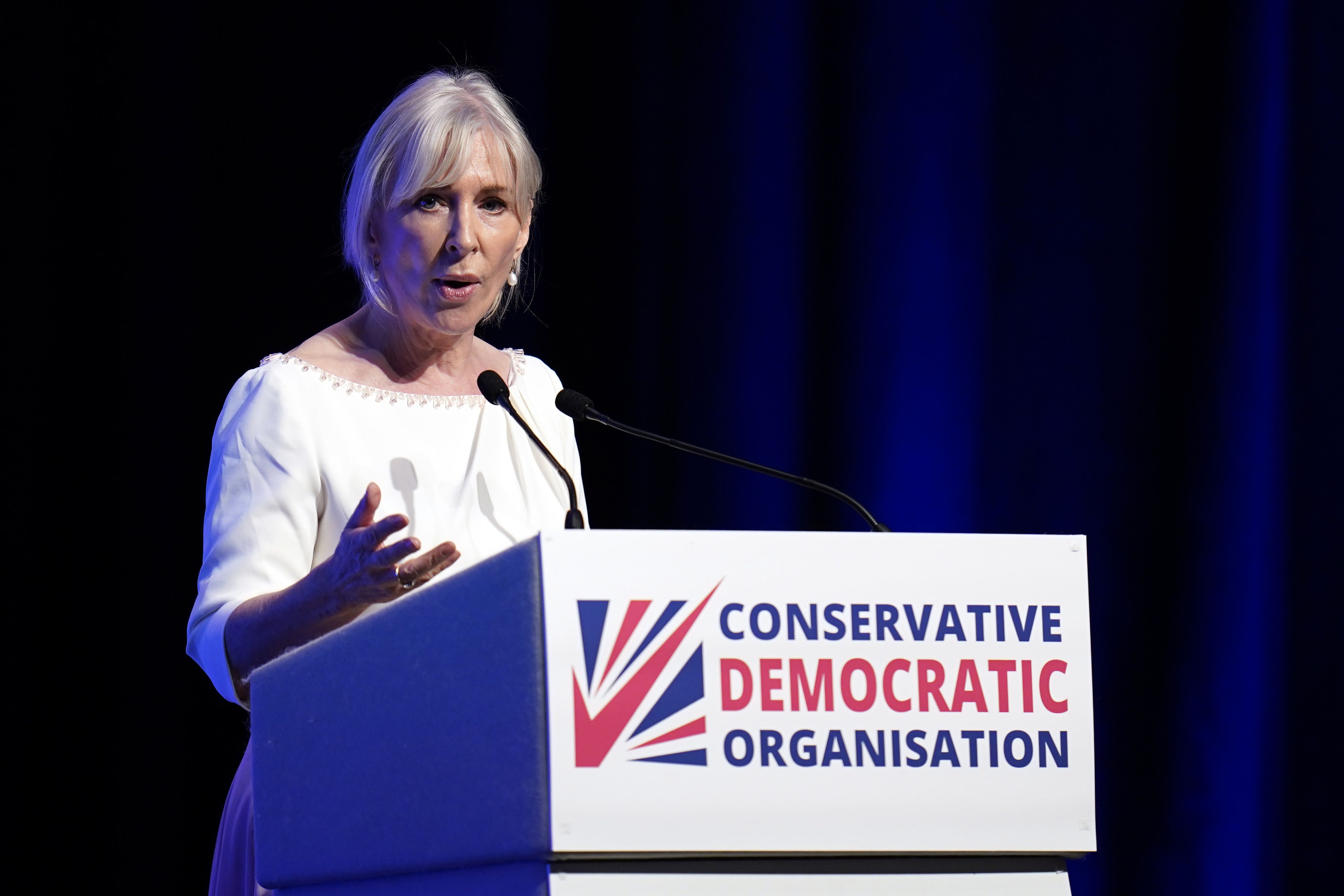Could the rules really be changed to oust Nadine Dorries?
The Mid Bedfordshire MP said in June that she would be leaving the Commons ‘with ‘immediate effect’, but is yet to actually quit. Jon Stone examines her critics’ options


Nadine Dorries last spoke in the Commons in July last 2022, over a year ago. Could rules be changed to speed her exit from parliament?
The Mid Bedfordshire MP and close ally of Boris Johnson said in June that she would be leaving the Commons “with immediate effect”, but is yet to actually quit.
She remains an elected MP and nobody can force her to leave.
But tempers are fraying – one of her local councils has passed a motion urging her to step down because they feel the area lacks representation. Even the prime minister has intervened. Rishi Sunak said this week he doesn't think Dorries' constituency is being properly represented.
How might her critics proceed? One idea put forward this weekend comes from the standards committee chair Chris Bryant, a Labour MP.
Bryant has suggested that a parliamentary rule from 1801 should be reintroduced that allows no MP to “go out of town without leave of this House” – albeit with a modern twist.
Under the proposals, outlined in his new book Code of Conduct: Why We Need to Fix Parliament – and How to Do It, Bryant says any MP who fails to show up to the Commons for six months should be made to attend a date or be suspended for 10 sitting days or more.
The 10 days is the important factor here: since the Recall of MPs Act 2015 any MP suspended for at least 10 sitting days (or 14 calendar days) can be subject to a recall election.
The suspension wouldn't kick Dorries or any other MP out immediately – but it would pass the threshold for their constituents to start the process of triggering a by-election, if they were so inclined.
Once the suspension threshold is passed, the MP's constituents may look to gather signatures equivalent to least 10 per cent of the number of eligible registered electors in that member's constituency. This has to be done within six weeks.
It would be at this point that a recall election could be triggered, effectively starting a by-election.
How could the rules be changed? Bryant thinks the House’s standing orders could be changed with a motion when MPs return in September. To pass, this would likely require government backing – perhaps a possibility given the prime minister's previous comments on the matter.
But how plausible is this course of action? One factor worth considering might be time. Even if the rules were changed immediately in September when MPs return, a recall petition would not be complete until December at the earliest. The by-election would probably not take place until 2024. By this point, it might not be long until a general election anyway, which some have suggested could take place in the spring. Dorries might even have chosen to leave on her own accord.
There is perhaps a more fundamental issue with the proposal, however. It seems that an MP could reset their absence timer by attending parliament and speaking briefly for one day, and then simply disappearing again for another six months. If for whatever reason Dorries wants to stay as an MP without doing any parliamentary work, the proposed sanctions would be fairly trivial to evade.






Join our commenting forum
Join thought-provoking conversations, follow other Independent readers and see their replies
Comments